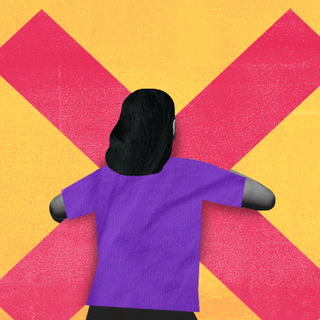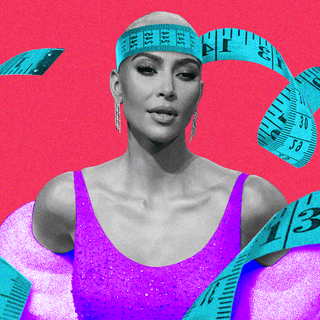
The Johnny Depp‑Amber Heard Trial Bolstered Meme Pages as the New Mass Media
In no other significant event have meme pages intervened as much to actively drive the narrative and shape public opinion; sparking a concerning trend.

There are three facets of the much-publicized Johnny Depp and Amber Heard trial that should spell a few concerns for citizens and consumers — and, in the social media age, consumer-citizens — alike. One, that much of the trial available for public viewing is underscored by meme page commentary. Two, that the trial in question is one that deals with intimate partner violence and raises big questions about accountability. And finally, that all nuance is sacrificed in service of byte-sized content mediated to the public through social media accounts — with social media algorithms incentivizing quick judgments with little context by a de facto jury that is bound by neither journalistic nor legal standards of ethics.
The verdict of the case could be important on many accounts. It could, for one, expose the limits of the law in recognizing all the dimensions of intimate partner violence. But the public narrative, on the other hand, has already been cemented: Depp as an innocent man wronged by a scorned, vicious woman. If social media’s explore pages are anything to go by, thousands of minutes of reels have been dedicated to playing up Depp’s soft side, showing him visiting children’s hospitals in his Jack Sparrow costume, pulling up a chair for a member of his legal team in court, smiling as he proudly admits to getting clean from opiate addiction, and generally seeming like someone who would never do something like what Heard alleged. And therein lies the problem.
When #MeToo helped unpack the idea of the “perfect” victim, it also showed the other side of the coin: that there is no such thing as the “perfect“ perpetrator. It unpacked racist, casteist, and classist stereotypes of the stranger in the street mythology, showing how great men of standing can and very often do stoop to commit acts that belie their public appearances. Many abusers fallen from grace have shown time and again that they could publicly appear to be kind, compassionate, helpful, playful, and soft. Indeed, these characteristics are often brought up in court in favor of a certain type of man in particular: one at the topmost rungs of the privilege hierarchy, who embodies all the characteristics of decency and what is seen as moral goodness.
Philosopher Amia Srinivasan, in her book The Right to Sex, discusses the manner in which Brock Turner, the infamous Stanford Swimmer accused of sexually assaulting a woman named Chanel Miller, was discussed in court. Referring to a statement Turner’s father read out describing the family’s heartbreak at losing the side of Turner that would cheerfully consume steak and pretzels, Srinvasan noted: “This is the way one talks about a golden retriever, not an adult human. But in a sense Dan Turner is talking about an animal, a perfectly bred specimen of wealthy white American boyhood: ‘happy go lucky’, ‘easygoing’, sporty, friendly, and endowed with a healthy appetite and glistening coat.”
In the present trial, social media content and meme pages are fulfilling the same function as defense attorneys and wealthy families like Turner’s defending their kin: reinforcing scripts of “good” masculinity that cannot be associated with any criminality whatsoever.
Related on The Swaddle:
Stop Looking for the Perfect #MeToo Victim
This is not to pronounce guilt upon Depp. But what began with televised trials and the news media (think the O.J Simpson trial) is further bolstered by social media accounts in the age of content, where tried and tested stereotypes make for easy narrative devices. It is much faster, easier, and more clickable to post videos and pictures of the case juxtaposed with hashtags pronouncing their own verdict than it is to report on the trial while abiding with journalistic ethics. In a sense, meme pages are tabloids on steroids: they sacrifice nuance for clicks and virality, in the process shaping public opinion like never before.
Moreover, the same phenomenon also paints Heard as a lying, manipulative woman not through the facts of the case itself, but by dissecting her reactions, facial expressions, and tone to an atomizing degree. This, once again, reinforces the same script that the law has been criticized for: judging people on trial on the basis of their reactions rather than the facts. There is also a virulently misogynistic undercurrent to the meme-ification of Heard’s testimony in particular: with many taking delight in her apparent missteps while, in the same breath, expressing a vindicating glee about how feminism itself is supposedly undermined.
But as feminists themselves have reiterated time and again, violence is a patriarchal script that doesn’t leave men immune from suffering from it. What the Depp and Heard trial shows, more than anything, is that sometimes there isn’t a clear line separating victims from perpetrators.
Far from sitting with the greys of such situations and thinking about harm redressal, however, social media accounts with massive followings oversimplify and inevitably harm these conversations, fuelled purely by an algorithmic adrenaline rush. We may never get closure or neat answers from this particular case, nor should we demand it. But as content steadily rises as the biggest purveyor of information and mass media, neat answers may be manufactured by force for clicks and likes — against justice and the truth itself.
Rohitha Naraharisetty is a Senior Associate Editor at The Swaddle. She writes about the intersection of gender, caste, social movements, and pop culture. She can be found on Instagram at @rohitha_97 or on Twitter at @romimacaronii.
Related


Why We Should be Wrong More Often
